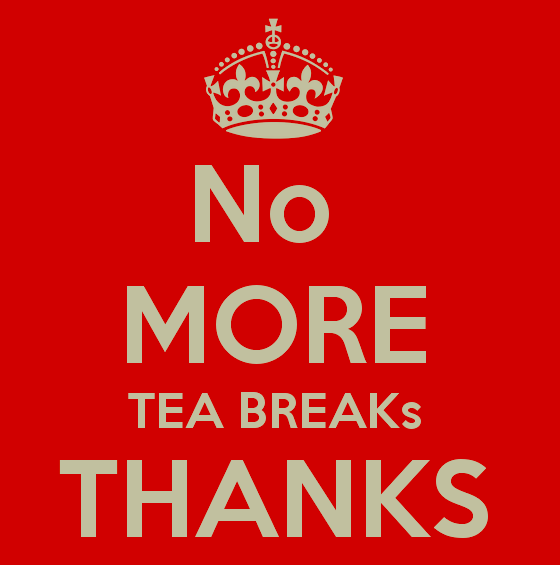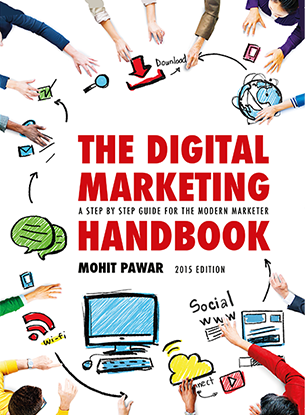There comes a time when you can’t take it anymore. Such are the times when people make big changes or take drastic action.
For me, one of those times came early in 2014. It wasn’t a big deal by anyone’s standards. But I desperately wanted to break my streak. My streak as a long time drinker of copious amounts of tea. Tea drinking usually is considered healthy. I am not sure of the recommended quantity. It is definitely not 45 cups. That was my daily quota at that time.

I still remember the day when it became too much for me. I decided to quit it once again after failing to quit many times earlier. That day was 9th Jan 2014. That day I took a small step that would become big later.
About a year after that day I started thinking about how I succeed this time whereas I had failed earlier. I realized what had changed.
I realized if it was not for my meditation practice I would not have been able to kick that habit. The same day when I quit my tea drinking habit I started meditating for 5 minutes a day and continued through all these years. Meditation not only helped me with quitting tea, but it also helped me become more centered and calm. This calmness reflected in how I reacted to situations and moved through my day.
Meditation helped by doing what it does at the core – creating space between the trigger and subsequent action. The triggers like breakfast, lunch, dinner, in general, food and hunger that prompted to drink tea were all there. But the space meditation created for me allowed me to not take my usual action which was drinking tea. I chose milk instead. Milk is not addictive like tea because there is no caffeine so it worked.
With meditation, I was able to resist the urge because I knew that it will be bad for me. I instead gravitated towards doing what was right for my well being. It was automatic and done without much resistance or effort on my part.
The focus that I gained through meditation allowed me to do a lot more. Meditation was this simple habit that helped me kick a long time addiction and it changed other parts of my life.
Meditation offered compound returns. It was my keystone habit.
Keystone Habit. What?
All habits are not created equal. Some have a bigger effect on your life than others. Keystone habits are such habits. These habits look the same on the surface but are more powerful than other habits.
Charles Duhigg introduced the idea of keystone habits in his book “The Power of Habit”.
Keystone habits are related to other habits. These habits create a ripple effect of other other good outcomes in our life. When you practice a keystone habit you’ll see its impact in other areas of your life in a profound manner as I did with meditation.
My Recommended Stack: Keystone Habits That You Can Include In Your Life
You can include keystone habits and transform your life one day at a time.
My keystone habit stack includes meditation, writing, reading, sleeping for 7-8 hours. Yours may differ. You can create your stack using the habits you already follow and by picking one or two from the ones I have shared below.
MEDITATION
Meditation is at the top of my keystone habit stack. Meditation makes you calm, centered and improves your sense of well being. It has also been proven to reduce stress [1], strengthen the immune system, and to improve awareness.
MAKING YOUR BED
It gives you one big win first thing in your day. This small win continues with its positive effects in your day. US Navy’s Admiral William H. McRaven wrote in his NY Times bestselling book “Make Your Bed” that making your habit is one of those habits that can change your life.
WALKING
This is a favorite of geniuses like Charles Dickens, Darwin, Beethoven and many others [2].
Dickens took three-hour walks every afternoon and what he observed went into his writing. Why? Because it improves brain functioning and allows you to break from whatever you are thinking and boosts creativity by taking your mind away from whatever you are working on and gives time to actually think.
WORKOUT
Regular exercise improves your energy levels, confidence, and ability to focus. All this can help you accomplish more, be more satisfied and more successful. Exercise is also associated with less stress, increased patience, better mood, more confidence, and better sleep.
Casey Neistat, filmmaker and one of the most famous YouTube stars, at one point said that he works out for three hours a day. That might be an extreme. I someone who made a film a day for a long time can do it then you or I have no excuse for not doing it.
READING
Want to get into the league of famous billionaires and make your mind function well?
Read.
It is a habit common among Elon Musk, Bill Gates, Warren Buffet, Oprah Winfrey and Mark Zuckerberg. [4]
Elon Musk when asked how he learned to build rockets, he said, “I read books.”
In 2009, Carnegie Mellon University scientists Timothy Keller and Marcel came across evidence that it is possible to make the mind work better by reading.
Nathaniel Dean, a tech professional in San Fransico, read 100 books in 2018. He came across a surprising benefit thanks for reading which results in one another positive change.
Here is what he shared in a recent essay:
“As I commonly read before bed I all but quit drinking alcohol (my retention drops perceptibly after even one glass of wine). As a result, I got better sleep: unsurprisingly the unhappy relationship between REM sleep and alcohol is detailed in #97, ‘Why We Sleep’. While this wasn’t an express goal, I also found it was far easier to lose weight when you stop drinking.”
PLANNING YOUR DAY THE NIGHT BEFORE
A lot of successful entrepreneurs practice this habit. The logic is simple. It is a great productivity booster to start your day knowing what you want to accomplish. It’s much better than spending precious quiet time thinking about what to do and creating your to-do list. Winners straight head into most important stuff first.
7-8 HOURS OF SLEEP EVERY NIGHT
You can’t create your best work without a good night’s sleep. Our cognitive functions suffer due to lack of sleep. This is so basic that we often tend to ignore this. Sleep at the same time every day if you can.
Meditation and exercise when done in the morning are a great way to prime yourself for a productive day.
Which of these habits will you add to your routine?
FOOTNOTES.
[1] Meditation Programs for Psychological Stress and Well-being A Systematic Review and Meta-analysis [JAMA Internal Medicine Site], related Harvard Health Publishing blog
[2] The Daily Routines of Geniuses, HBR
[3] Fat and Lazy, Casey Neistat YouTube[4] If you want to be like Warren Buffett and Bill Gates, adopt their voracious reading habits, Quartz
[4] If you want to be like Warren Buffett and Bill Gates, adopt their voracious reading habits, Quartz


